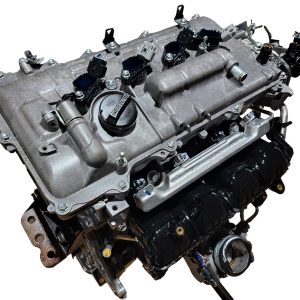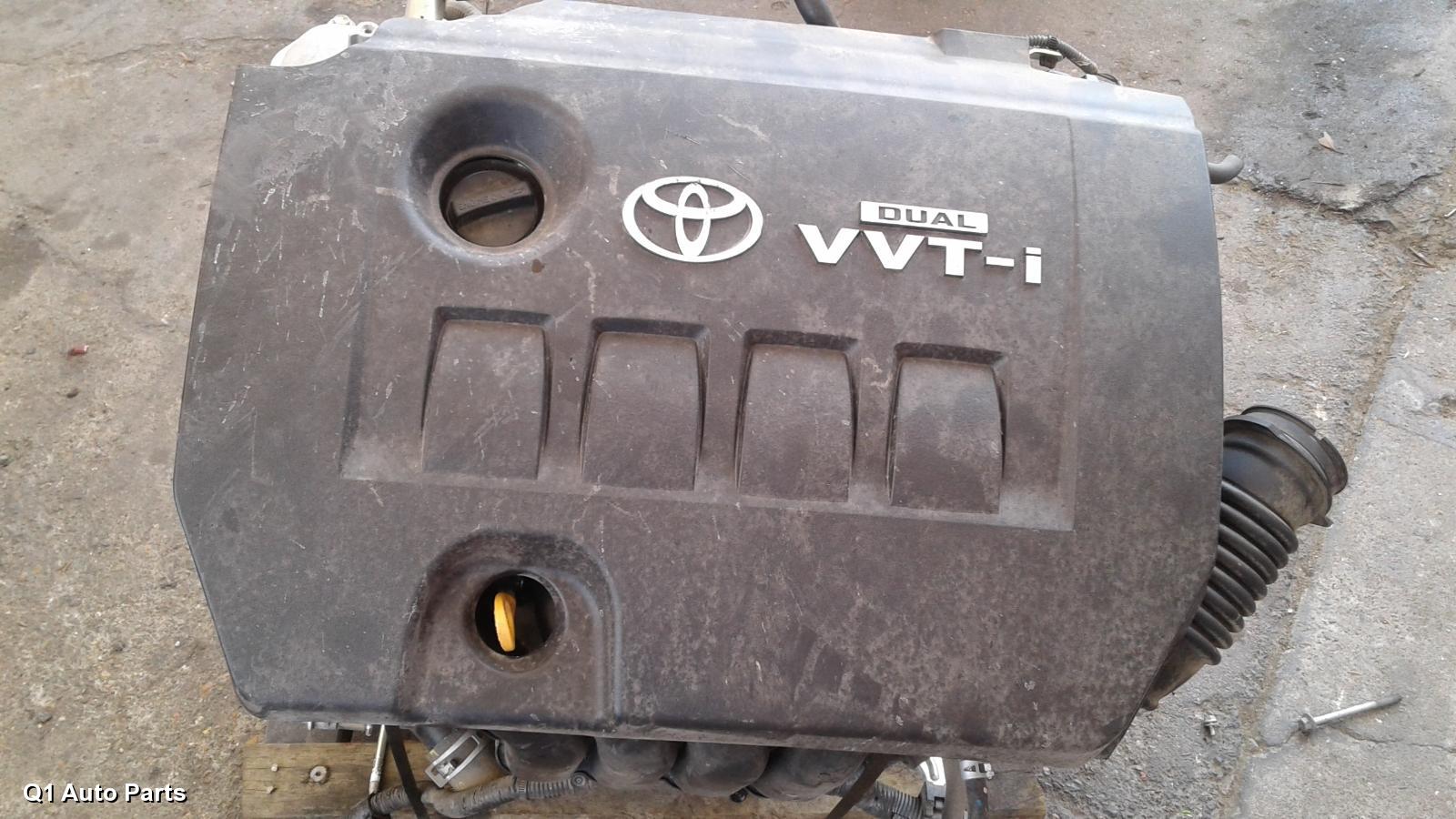Learn Why the Toyota RunX RSI Is a Popular Choice Amongst Compact Cars
Learn Why the Toyota RunX RSI Is a Popular Choice Amongst Compact Cars
Blog Article
Explore Top Quality and Value: Your Overview to Purchasing a Pre-owned Engine
When taking into consideration the purchase of a second-hand engine, recognizing the intricate balance in between top quality and worth is critical. A comprehensive evaluation of engine background, condition, and integrity is vital to ensure a sound financial investment. By conducting correct assessments and study, prospective customers can browse the complexities of the market better. The nuances of warranty choices and pricing approaches can significantly influence the overall decision-making process. As you consider these elements, one inquiry continues to be: what particular components will ultimately lead your option in this important financial investment?
Understanding Engine Types
When considering the purchase of a pre-owned engine, comprehension of the different engine types is important for making an informed decision. Engines can generally be classified right into two major kinds: interior burning engines and electric engines. Internal combustion engines, which include gas and diesel variations, count on the burning of gas to generate power. Gas engines are commonly lighter and rev greater, making them suitable for performance lorries, while diesel motor are renowned for their torque and gas efficiency, commonly favored in heavy-duty applications.
On the other hand, electrical engines make use of electricity saved in batteries to power the automobile, supplying a cleaner alternative with fewer moving components and minimized upkeep demands. Within these categories, there are further distinctions, such as two-stroke versus four-stroke inner burning engines, and different electrical motor configurations.
Understanding these differences is vital, as they influence performance, compatibility with existing car systems, and lasting functional expenses. By familiarizing oneself with the different sorts of engines available, possible buyers can much better analyze their requirements and make options that straighten with their lorry's needs and their individual preferences.

Reviewing Engine Condition
A detailed assessment of engine condition is critical for any individual taking into consideration the acquisition of a second-hand engine. Begin with a visual inspection; check for indicators of oil leaks, deterioration, or any physical damages to the engine block. A clean engine is frequently a measure of great upkeep methods, while too much grime may suggest overlook.
Following, evaluate the engine's components, including the timing belt, gaskets, and seals. Try to find wear and tear, as these parts can be expensive to change. Furthermore, check out the engine places, as damaged installs might cause vibrations and further mechanical issues.
A compression test is vital to gauge internal engine health. Uniform compression throughout all cyndrical tubes suggests a well-kept engine, whereas substantial inconsistencies may indicate internal damage or wear.
Listening to the engine during a start-up can supply important insights; any type of unusual sounds, such as knocking or rattling, may suggest much deeper concerns. If feasible, demand a test run to evaluate efficiency under tons. By diligently assessing these elements, possible buyers can make educated choices and safeguard a high quality pre-owned engine.
Checking Engine Background
Comprehending the engine's background is critical for making a well-informed purchase. Expertise of previous usage, maintenance records, and any type of past damages can substantially affect the engine's integrity and longevity. Start by requesting the car recognition number (VIN) or engine serial number, which permits you to trace the engine's history.
Make use of available resources, such as Carfax or AutoCheck, to get an automobile background report. This record will provide important understandings, consisting of crash history, service records, and previous possession details. Toyota More about the author RunX RSI. Pay particular focus to any kind of signs of serious damages or duplicated repairs, which might indicate underlying problems
Inquire regarding upkeep regimens performed on the engine. Regular oil adjustments, timing belt substitutes, and other precautionary steps reflect liable possession. Additionally, ask if the engine has gone through any alterations, as non-standard changes can impact efficiency and compatibility with your automobile.
Last but not least, when possible, seek verification from a trusted technician who can analyze the engine's condition based on its history (Toyota RunX RSI). This detailed examination will assist you stay clear of potential risks and make sure that your financial investment is beneficial and sound
Guarantee and Return Plans
Purchasing a used engine typically features differing guarantee and return plans that can dramatically impact your choice. When taking into consideration an utilized explanation engine, it is necessary to completely review the service warranty choices given by the vendor. Some suppliers may offer restricted guarantees that cover particular parts for a specified period, while others could give more detailed protection. Comprehending the problems and terms affixed to these guarantees is important, as they can influence the lasting value and dependability of your purchase.

Additionally, respectable vendors typically offer paperwork that lays out the warranty and return process, making certain transparency. Always ask for this info prior to finalizing your purchase. A well-defined guarantee and return plan can supply tranquility of mind and secure your financial investment, making it an indispensable component of the decision-making process when purchasing a pre-owned engine.
Locating the very best Bargains
When seeking the very best bargains on a second-hand engine, it is vital to carry out complete research and compare prices from numerous sellers. Start by discovering on-line marketplaces, auto forums, and neighborhood salvage yards to collect a thorough understanding of the marketplace. Making use of price comparison tools can streamline this procedure, highlighting affordable prices across various platforms.

Consider timing your acquisition strategically. Seasonal changes sought after can affect prices, with certain times of the year using better bargains. Furthermore, be open to discussing costs; numerous vendors may be willing to decrease their asking price, particularly if the engine has actually been detailed Read Full Report for an extensive period.
Conclusion
In summary, acquiring a pre-owned engine necessitates a comprehensive analysis of high quality and value. Examining engine condition with assessments and examinations, verifying its history, and comprehending warranty and return plans are critical steps.
When taking into consideration the acquisition of a second-hand engine, comprehension of the various engine kinds is essential for making a notified choice. Engines can typically be categorized into two primary types: internal burning engines and electrical engines. Gas engines are usually lighter and rev greater, making them appropriate for efficiency lorries, while diesel engines are renowned for their torque and fuel effectiveness, typically favored in sturdy applications.
A detailed analysis of engine problem is vital for any individual thinking about the purchase of a used engine. Beginning by asking for the vehicle identification number (VIN) or engine serial number, which permits you to map the engine's history.
Report this page